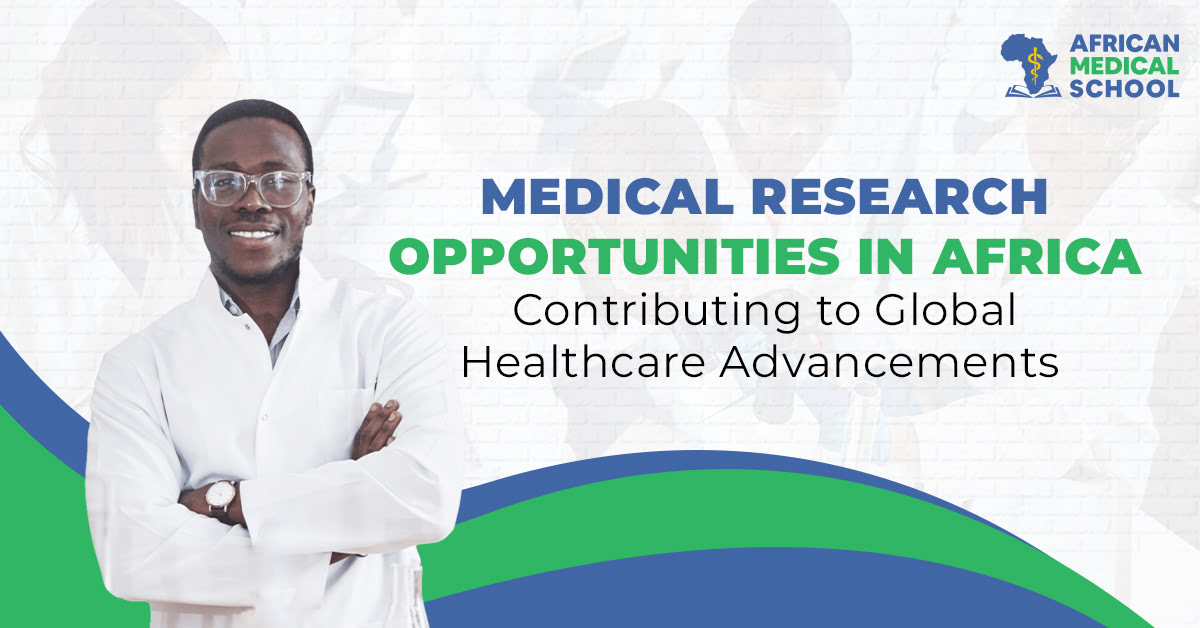|
|
Blog Summary
- Introduction
- The State of Healthcare in Africa
- Emerging Medical Research Hubs in Africa
- Funding and Support for Medical Research
- Advantages of Conducting Research in Africa
- Challenges and Ethical Considerations
- Success Stories in African Medical Research
- Future Prospects and Potential Impact
- Conclusion
- FAQ
Introduction
Numerous challenges and opportunities coexist in the vast and diverse landscape of African healthcare. The continent grapples with various health issues, from infectious diseases like malaria and HIV/AIDS to non-communicable diseases like hypertension and diabetes. However, amidst these challenges lies the immense potential for medical research to profoundly impact global healthcare advancements. This article aims to shed light on the critical role that Africa can play in the realm of medical research.
By exploring the burgeoning research hubs, funding initiatives, and success stories across the continent, we seek to underline the significant opportunities for scientific exploration and innovation in Africa that have the power to shape the future of healthcare worldwide.
Join us on this journey to uncover the untapped potential of medical research in Africa and its pivotal contribution to global healthcare progress.
The State of Healthcare in Africa
A multitude of pressing challenges marks Africa’s healthcare landscape. The continent has tremendous challenges, including limited access to excellent healthcare services, inadequate infrastructure, and a shortage of competent medical professionals. These challenges, compounded by factors such as poverty, political instability, and the burden of diseases like HIV/AIDS, malaria, and tuberculosis, have contributed to a healthcare system that struggles to meet the needs of its vast and diverse population. Additionally, there is still inequality in healthcare, with rural and underdeveloped areas suffering the most from subpar treatment. These differences worsen health outcomes and feed the vicious cycle of poverty and poor health.

Recognizing the urgent need for innovative solutions within Africa and through international collaborations is imperative to address these disparities and pave the way for a healthier and more prosperous continent. Africa’s healthcare challenges represent an opportunity for global healthcare advancement through research, innovation, and collective action. Healthcare education in Africa plays a pivotal role in training the next generation of medical professionals who can address the pressing challenges facing the continent’s healthcare system.
Emerging Medical Research Hubs in Africa
Africa is rapidly becoming a burgeoning hub for medical research, with several key institutions and centres at the forefront of groundbreaking discoveries. These research hubs play a pivotal role in advancing healthcare on the continent and globally. Some notable institutions include:
- African Institute for Biomedical Science and Technology (AiBST): Situated in Zimbabwe, AiBST is renowned for its cutting-edge research in infectious diseases like HIV/AIDS and malaria. Their work has led to the development of innovative diagnostics and treatments, improving healthcare outcomes in Africa and beyond.
- Institut Pasteur de Dakar: Located in Senegal, this institution has been instrumental in studying tropical diseases and emerging pathogens. Their efforts have contributed to understanding diseases such as Zika and Ebola, and their collaboration with international partners has led to the development of vaccines and therapeutics.
- KEMRI-Wellcome Trust Research Programme: Based in Kenya, this collaboration between the Kenya Medical Research Institute (KEMRI) and the Wellcome Trust is dedicated to tackling significant health challenges in East Africa. Their research on tuberculosis and malaria has led to groundbreaking insights and interventions.
These organizations provide a substantial contribution to medical research and stress the value of cooperation between African and foreign peers.
Funding and Support for Medical Research
Funding and support are pivotal in driving African medical research initiatives towards contributing to global healthcare advancements. Here are key points highlighting the various sources of support:
Government Initiatives: African governments have increasingly recognized the importance of medical research and are investing in research infrastructure, training, and projects. These investments facilitate groundbreaking research and bolster the healthcare system as a whole.
International Organizations and NGOs: Collaboration with international organizations such as the World Health Organisation (WHO) and non-governmental organizations (NGOs) such as the Bill and Melinda Gates Foundation is critical in funding and giving resources for medical research in Africa. These collaborations bring knowledge, budget, and worldwide networking opportunities.
Private Sector Involvement: Private companies, particularly pharmaceutical and biotechnology firms, are increasingly seeing the potential in African medical research. They offer funding, technological support, and access to clinical trials, thus accelerating research progress.
Incorporating these diverse funding sources creates a robust ecosystem for medical research in Africa, enabling researchers to tackle pressing healthcare challenges and contribute meaningfully to global advancements. African Medical Schools play a vital role in the quest for funding and support, serving as valuable resources for medical research initiatives in Africa.
Advantages of Conducting Research in Africa
Africa offers a unique and invaluable environment for medical research, boasting rich biodiversity and one-of-a-kind ecosystems. The continent’s diverse landscapes, from the lush rainforests of Central Africa to the arid deserts of the Sahara, provide many opportunities for studying various diseases and their interactions with different environments. Researchers can explore indigenous plants and wildlife, potentially uncovering novel treatments and medical breakthroughs. Moreover, Africa’s ecosystems are often home to diseases with global relevance, such as malaria and Ebola, making it a critical region for developing vaccines and treatments that benefit people worldwide. Africa’s diverse population and unique ecosystems provide an ideal setting for medical research, making it one of the best regions for collaboration with the best medical universities in Africa to drive global healthcare advancements.
In addition to its ecological advantages, Africa offers a diverse population that is invaluable for conducting clinical trials. The continent is home to many ethnicities, cultures, and genetic backgrounds, making it an ideal testing ground for pharmaceuticals, medical interventions, and treatment strategies. This diversity allows researchers to evaluate how various groups respond to treatments, ensuring their efficacy across genetic profiles. Africa’s large and growing population offers a significant advantage for recruiting participants in clinical trials, expediting the research process, and accelerating the development of new therapies.
Challenges and Ethical Considerations
Addressing ethical concerns in the realm of medical research in Africa is a paramount challenge. Ensuring the ethical treatment of research subjects and the responsible use of data is imperative. Researchers must navigate cultural sensitivities, informed consent processes, and the potential exploitation of vulnerable populations. Additionally, infrastructure and resource limitations pose substantial hurdles. Many African countries lack the necessary research facilities, equipment, and funding to conduct comprehensive studies.

However, researchers are increasingly exploring innovative strategies for overcoming these challenges. Balancing ethical integrity with resource limitations is a crucial component of promoting medical research in Africa and expanding global healthcare.
Success Stories in African Medical Research
African medical researchers have significantly contributed to the global understanding and treatment of various diseases, including HIV/AIDS, malaria, tuberculosis, and Ebola. In 2003, South African scientist Salim Abdool Karim was one of the first to identify the HIV-1 subtype C, which is the most common subtype of HIV in the world. This discovery helped to develop more effective HIV treatment and prevention strategies.
- Dr. Akinwumi Adesina is a Nigerian agricultural scientist working to improve food security and nutrition in Africa. The World Food Prize and the G7 have recognized him for his work.
- Ghanaian scientist Moses Amoako Boaitey developed a new malaria diagnostic test that is more accurate and affordable than previous tests. This test is now being used in over 20 countries around the world.
These are just a few examples of the many talented and dedicated African researchers working to improve healthcare for people worldwide. Their stories are an inspiration to us all.
Future Prospects and Potential Impact
In the realm of African medical research, the future holds immense promise. African researchers are poised to significantly contribute to global healthcare advancements, tackling regional and worldwide health challenges. Collaborative international partnerships will play a pivotal role in harnessing Africa’s research potential, facilitating knowledge exchange, and accelerating breakthroughs. Furthermore, education and capacity-building initiatives will empower the continent’s aspiring scientists, fostering innovation, and nurturing a new generation of healthcare leaders.
As African medical research continues to evolve, its potential impact on the world stage cannot be underestimated, promising a brighter and healthier future for all.
Conclusion
In conclusion, Africa’s healthcare landscape presents significant opportunities for global healthcare advancements through medical research. Despite the challenges, the continent’s emerging research hubs, diverse ecosystems, and collaborative efforts are poised to make substantial contributions. Ethical considerations and resource constraints require innovative solutions. African researchers, such as Dr Salim Abdool Karim and Dr Akinwumi Adesina, are already leading the way. With strengthened partnerships, education initiatives, and ongoing discoveries, Africa’s medical research sector is on track to shape a brighter and healthier global future.



46 Comments. Leave new
Somebody essentially lend a hand to make significantly articles Id state That is the very first time I frequented your website page and up to now I surprised with the research you made to make this actual submit amazing Wonderful task
**mindvault**
mindvault is a premium cognitive support formula created for adults 45+. It’s thoughtfully designed to help maintain clear thinking
**prostadine**
prostadine is a next-generation prostate support formula designed to help maintain, restore, and enhance optimal male prostate performance.
**sugarmute**
sugarmute is a science-guided nutritional supplement created to help maintain balanced blood sugar while supporting steady energy and mental clarity.
**gl pro**
gl pro is a natural dietary supplement designed to promote balanced blood sugar levels and curb sugar cravings.
**zencortex**
zencortex contains only the natural ingredients that are effective in supporting incredible hearing naturally.
**mitolyn**
mitolyn a nature-inspired supplement crafted to elevate metabolic activity and support sustainable weight management.
**prodentim**
prodentim an advanced probiotic formulation designed to support exceptional oral hygiene while fortifying teeth and gums.
**vittaburn**
vittaburn is a liquid dietary supplement formulated to support healthy weight reduction by increasing metabolic rate, reducing hunger, and promoting fat loss.
**yu sleep**
yusleep is a gentle, nano-enhanced nightly blend designed to help you drift off quickly, stay asleep longer, and wake feeling clear.
**synaptigen**
synaptigen is a next-generation brain support supplement that blends natural nootropics, adaptogens
**nitric boost**
nitric boost is a dietary formula crafted to enhance vitality and promote overall well-being.
**glucore**
glucore is a nutritional supplement that is given to patients daily to assist in maintaining healthy blood sugar and metabolic rates.
**wildgut**
wildgutis a precision-crafted nutritional blend designed to nurture your dog’s digestive tract.
**pinealxt**
pinealxt is a revolutionary supplement that promotes proper pineal gland function and energy levels to support healthy body function.
**energeia**
energeia is the first and only recipe that targets the root cause of stubborn belly fat and Deadly visceral fat.
**prostabliss**
prostabliss is a carefully developed dietary formula aimed at nurturing prostate vitality and improving urinary comfort.
**breathe**
breathe is a plant-powered tincture crafted to promote lung performance and enhance your breathing quality.
**potent stream**
potent stream is engineered to promote prostate well-being by counteracting the residue that can build up from hard-water minerals within the urinary tract.
**hepatoburn**
hepatoburn is a premium nutritional formula designed to enhance liver function, boost metabolism, and support natural fat breakdown.
**hepato burn**
hepato burn is a potent, plant-based formula created to promote optimal liver performance and naturally stimulate fat-burning mechanisms.
**cellufend**
cellufend is a natural supplement developed to support balanced blood sugar levels through a blend of botanical extracts and essential nutrients.
**prodentim**
prodentim is a forward-thinking oral wellness blend crafted to nurture and maintain a balanced mouth microbiome.
**flow force max**
flow force max delivers a forward-thinking, plant-focused way to support prostate health—while also helping maintain everyday energy, libido, and overall vitality.
**neurogenica**
neurogenica is a dietary supplement formulated to support nerve health and ease discomfort associated with neuropathy.
**revitag**
revitag is a daily skin-support formula created to promote a healthy complexion and visibly diminish the appearance of skin tags.
**sleeplean**
sleeplean is a US-trusted, naturally focused nighttime support formula that helps your body burn fat while you rest.
**memory lift**
memory lift is an innovative dietary formula designed to naturally nurture brain wellness and sharpen cognitive performance.
Excellent article. Sharing this with my colleagues.
Always hunting for a good deal! Snagged a promo code from jiliapppromocode and it gave me a nice little boost to start with. Definitely worth checking out if you’re looking for some extra playtime! Win big with this promo code: jiliapppromocode
ABC8slot, eh? Slots are my jam! Gotta see what kinda variety they’re offering. If they got those classic fruit machines, I’m sold. Wish me luck! Gonna explore abc8slot now.
Interesting read! Seeing more platforms like jl 77 slot download focus on responsible gaming & local payments (GCash, PayMaya) is great for PH players. Security features are key too! 👍
Hey linkvaobong88com, are you really the best link to Bong88? I am so tired from link scams, hope you’re legit. Show me the money here: linkvaobong88com
Your article helped me a lot, is there any more related content? Thanks! https://www.binance.com/es/register?ref=RQUR4BEO
Win789vn8, not gonna lie, it caught my eye. I am trying my luck. See for yourself: win789vn8
Okay, jjwinlogin makes it so easy to jump right into the games. The login process is a breeze. I’m all about it! jjwinlogin
I don’t think the title of your article matches the content lol. Just kidding, mainly because I had some doubts after reading the article.
Can you be more specific about the content of your article? After reading it, I still have some doubts. Hope you can help me.
Can you be more specific about the content of your article? After reading it, I still have some doubts. Hope you can help me.
Para los que les gusta jugar desde el celular, el 777casinoapplogin es una buena opción. Es fácil acceder y jugar desde la app. Échenle un vistazo a 777casinoapplogin.
Just tried winpkrgame and honestly, it’s pretty decent! The interface is clean, and I didn’t experience any lag. Could use a few more game options, but overall a solid experience. Check it out at winpkrgame!
Downloaded the juegaenlineaapp and it’s pretty cool! Easy to use on my phone, and I like that I can play anywhere. A few of the games are a little simple, but still fun to kill some time. Download it now at juegaenlineaapp!
Can you be more specific about the content of your article? After reading it, I still have some doubts. Hope you can help me.
Your article helped me a lot, is there any more related content? Thanks!
В сети можно найти различные базы для хрумера скачать, но важно проверять их качество.
Interesting read! Handicapping can be so nuanced. Seeing platforms like casinoplus apps casino adapt to mobile is smart – accessibility is key for modern bettors, especially in the Philippines! Good analysis.